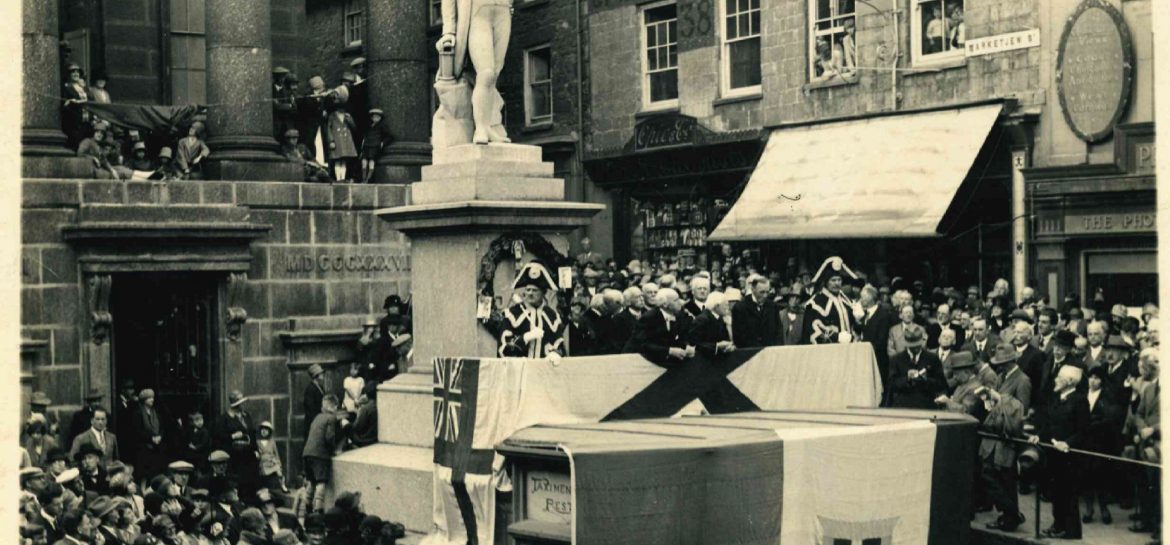
Madeleine Midgley writes about her forthcoming publication exploring the visit to Penzance in 1925 by J.A. Rogers, the prominent African-American writer, that is being launched in October this year by Cornish Story as part of Black History month at the Institute of Cornish Studies.
Joel Augustus Rogers, more widely known as J.A. Rogers (1880-1966) was a Black American author, journalist, historian and anthropologist whose writings and lectures over the course of half a century debunked racist stereotypes and challenged white supremacist ideology. Largely self-taught and entirely self-published, Rogers maintained a fraught relationship with the academy, yet is today viewed as both a pioneer in the field of foreign correspondence and a leading light in the US Black press. During the summer of 1925, he set out from New York on the first leg of a trip to Europe, partly in order “to get out of the atmosphere of race hate for a while” but also to document the experience for his primarily African American and Afro-Caribbean readers back home. Arriving in Britain, Rogers’s first destination was Cornwall. The powerful impressions gained during his few days spent in Penzance were to feed directly into his internationally influential theories on race and race relations.
How did this major player in the civil rights arena – who expounded on the Ku Klux Klan, Hitler and the Nazis, race mixing, social and workplace discrimination, and the attitude of Hollywood to the ‘Negroes’ – come to find respite and inspiration in inter-war Cornwall? What did he have to say about social issues and societal change, wages and the cost of living, and the ‘Communist Threat’? How far did his reception by the Cornish people inform his idea of race as a social construct, and of racism as a learned behaviour? And how much was wishful thinking?
J.A. Rogers’s serialized account of his visit to Penzance (and subsequently further afield), addressed as it was to Black Americans, casts light from a unique angle upon American (and European) perceptions of Cornwall, on anti-African American sentiment in the US and on anti-American sentiment across England and Europe. His writing for a people in diaspora consistently underscores the value of a people’s history, and prompts us to reflect on parallels between African American and Cornish political struggles for recognition.
To reserve a copy of this publication please email cornishstudies@exeter.ac.uk for further details
Cover Photograph: Humphry Davy Centenary, Penzance June 8 1929 (for May 29) ‘Addressing the assembly’. Image from the private collection of the late Mr Cyril Orchard, Bard of the Cornish Gorsedh – Gwas Pensans. Permission to use the image kindly given by the family of the late Mr Cyril Orchard, solely for use by the Institute of Cornish Studies.
Madeleine Midgley is the former Project Coordinator of “Cornish Braids”, the flagship community oral history project of the Cornish Audio-Visual Archive at the Institute of Cornish Studies. A graduate of the Universities of Wales, Bristol and Exeter, Madeleine has an enduring personal and academic interest in lesser-heard voices. Her PhD (undertaken from the ICS with supervisory input from the University of Greenwich) focused on Gypsy ethnic and cultural identity in Cornwall. A librarian by training, Madeleine currently works in student administration at the University of Southampton

Hello
Just wondered. Did JA Rogers visit Bristol or even pass through Brist Templemeads on his way to Penzance?
A budding Tour Guide
Liz